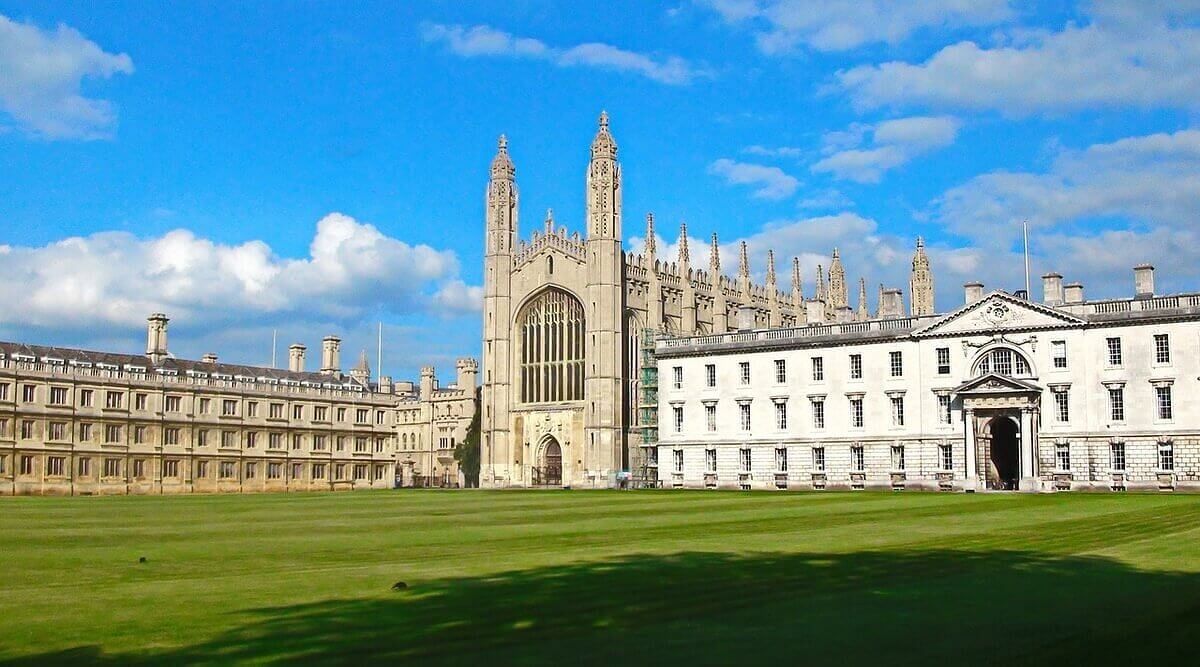Students from around the world dream of pursuing their higher education at the golden triangle universities in the UK. Read through the article to learn about the important facts and admission requirements of these universities.
Have you heard about the golden triangle universities in the UK? These are a set of universities that are based on the highly funded and top-notch research universities in the Southern English cities of London. The golden triangle is popularly known as the Loxbridge triangle.
Golden triangle universities are prestigious and well-respected academic institutions, especially in the area of research. Studying at golden triangle institutions is the dream of many international students. The University of Oxford and the University of Cambridge are the first two corners of the golden triangle. Those of the remaining London universities make up the third corner.
Table of Contents
List of Golden Triangle Universities in the UK
The golden triangle universities in the UK are also known as the elite universities. The table below provides the list of these universities, along with their latest rankings:
|
University |
Times Higher Education Rankings (2022) |
QS World University Rankings (2022) |
|
1 |
2 |
|
|
5 |
3 |
|
|
12 |
7 |
|
|
35 |
35 |
|
|
27 |
49 |
|
|
18 |
8 |
University of Oxford
The University of Oxford is one of the top-ranked collegiate research universities in the UK. It was founded around 925 years ago and is among the oldest universities in the English speaking world. The university is home to 39 semi-autonomous constituent colleges, 6 permanent private halls, and a number of academic departments. Oxford's inclusion in the list of the golden triangle universites group is well-justified. The university manages the world's oldest university museum and the largest academic library system in the country.
Following are some of the admission requirements of the University of Oxford:
- For UG courses, students must have 10+2 qualification from either CBSE or ISC with a minimum score of 90% in every subject.
- Overall CGPA of 3.2 on a scale of 4.0 (for graduate courses)
- Official Academic Transcripts
- Statement of Purpose
- Written Material (Essays as per course requirements)
- References/LORs
- Student CV / Academic Resume
- English Language Test Scores
- GMAT / GRE Scores
- Portfolio
Read More: University of Oxford
University of Cambridge
The University of Cambridge is a public research university that was founded in 1206. It incorporates 31 semi-autonomous constituent colleges and over 150 academic departments, faculties and other institutions organised into six schools. Cambridge University Press & Assessment combines the oldest and second-largest university press in the world. It operates eight cultural and scientific museums, several libraries and started the Cambridge Union – the world’s oldest debating society. By endowment size, Cambridge is the wealthiest university in Europe.
Below are some of the eligibility requirements to apply for the University of Cambridge:
- Academic transcripts
- IELTS/TOEFL score report
- Personal statement/SOP
- Reference letters/LORs
- CV (if applicable)
- Written work/Assessment Test/Portfolio depending on your course
- Financial documents such as loan or scholarship letter
- Copy of passport/visa
Read More: University of Cambridge
Imperial College London
In 1907, Imperial College was established by the Royal Charter, merging the Royal College of Science, Royal School of Mines, and City and Guilds College. The college focuses exclusively on science, technology, medicine and business. The college’s main campus is located in South Kensington, and it has an innovation campus in White City, a research field station at Silwood Park, and teaching hospitals throughout London.
Following are the admission requirements for Imperial College London:
- Official academic transcripts
- English proficiency test score
- Standardised exam score
- Statement of purpose or personal statement (as per course requirements)
- Admission essays (as per course requirements)
- 2-3 references/LORs (as per course requirements)
- Student CV/academic resume (as per course requirements)
- Proof of work experience (mandatory for MBA)
Read More: Imperial College London
King’s College London
Established in 1829, King’s College London is one of the oldest universities in England. King’s has five campuses including its historic Strand Campus in central London. As a part of the Golden Triangle, it is a member of numerous academic organisations, houses six Medical Research Council centres and founded the world’s first nursing school.
To apply to King’s College, students must meet the following eligibility requirements:
- High school leaving certificate from CBSE and CISCE boards at the end of Grade 12
- An overall average score of 80 per cent and 90 per cent in the Grade 12 examination
- English Language Test Score
- IELTS Academic: overall band score of 7 or more
- PTE Academic: overall score of 69 or more
- TOEFL iBT: overall 100; with a minimum of 25 in writing and 23 in each of the other skills
- Academic Transcripts
- Personal Statement
Read More: King’s College London
London School of Economics and Political Science
LSE was established in 1895 by Fabian Society members. It is located in Westminster, Central London, near the boundary between Covent Garden and Holborn. One hundred and fifty-five nationalities are represented amongst the LSE’s student body and the school has the second-highest percentage of international students (70%) of all world universities.
Some of the admission requirements for LSE are listed below:
- Academic transcripts
- Proof of proficiency in the English language
- Personal statement
- Letters of Recommendation (LORs)
- Financial documents
- Resume
Read More: London School of Economics and Political Science
University College London
Established in 1826, as London University, UCL was the first university institution to be established in London and to operate entirely secularly. UCL has its main campus in the Bloomsbury area of central London, with a number of institutes and teaching hospitals elsewhere in central London and satellite campuses in Queen Elizabeth Olympic Park in Stratford, east London and in Doha, Qatar. UCL is organised into 11 constituent faculties, within which there are over 100 departments, institutes and research centres.
Here are some of the eligibility requirements to apply to the University College London:
- Academic transcripts (English-translated)
- Statement of purpose
- References/LORs (required for MBA and some PG programs)
- CV/Academic resume (required for MBA and some PG programs)
- Proof of work experience (if applicable)
- Portfolios and written work samples (in some PG courses)
- English proficiency test scores
- Standardised exam scores
Read More: University College London
Research on the Golden Triangle Universities
The Golden triangle universities are called 'elite universties' because these universities have contributed immensely in the field of research and innovation. Here are some of the major facts about Golden Triangle Universities:
-
Golden triangle universities generate the highest research incomes among British universities. They collaborate through initiatives like the G5, Global Medical Cluster (GMEC), MedCity,[52] and SES.
-
With the exception of the LSE, significant fractions of their research income come from clinical medicine, varying from 38.2% (Cambridge) to 58.9% (King’s College London), compared to an average across the UK of 33.7%. Overall, 48.1% of the research income of the six institutions (48.8% excluding the LSE) comes from clinical medicine research.
-
In 2018/19, 31.9% of all research income from UK universities went to one of the golden triangle institutions.




POST YOUR COMMENT